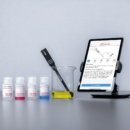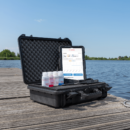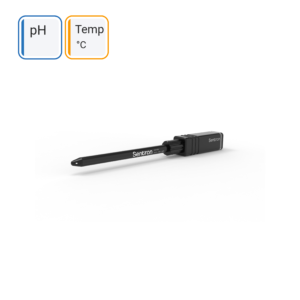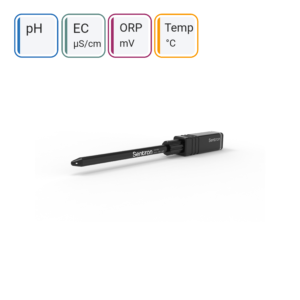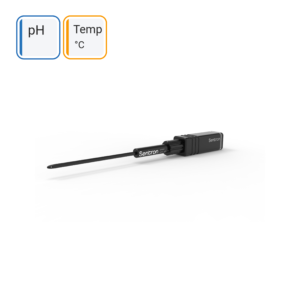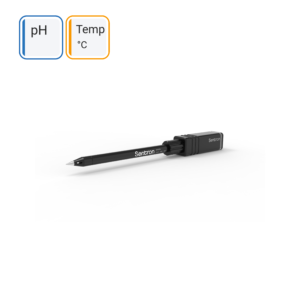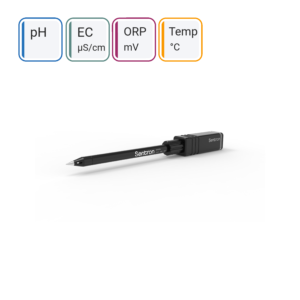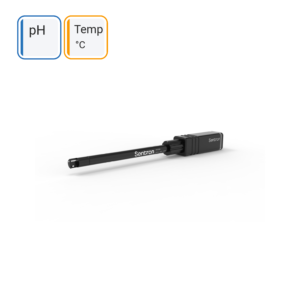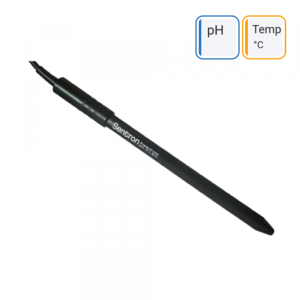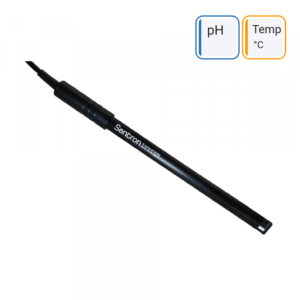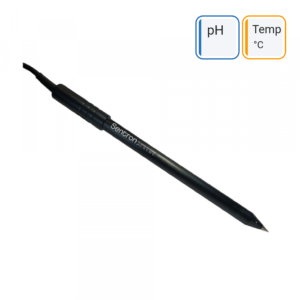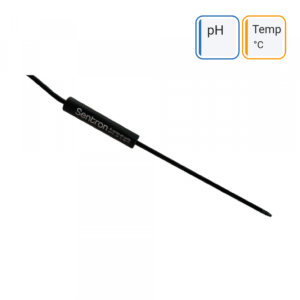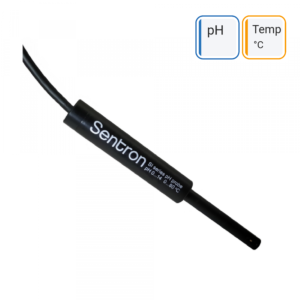ISFET pH probes, 4-electrode conductivity probes and multiparameter options
The ISFET pH sensor as well as the 4-electrode conductivity sensor are manufactured in our own semiconductor production facility. This enable high advanced multiparameter probes for pH, EC, ORP and temperature in one single device!
Interested in purchasing a probe or an item listed below? Please contact us for a quote.
Thanks to the ISFET pH sensor technology and the 4-electrode EC sensor, the analytical probes of Sentron are:
- Robust, thanks to their PEEK / ABS housing material and silicon-based sensor.
- Dry storage resistable, which is highly advantageous for applications outside the clean laboratory. Note that the conventional glass pH probes cannot withstand any dry-running.
- Durable, as the sensor part is replaceable.
- Accurate and not affected by temperature changes thanks to the integrated temperature sensor.
- Various dimensions are available, from 3 to 10 millimeter diameter sensor parts and different tip shapes.
-

ConeFET pH/T ISFET probe incl. free app
Add to cart -

ConeFET pH/EC/ORP/T probe incl. free app
Add to cart -

MicroFET pH/T ISFET probe incl. free app
Add to cart -

LanceFET pH/T ISFET probe incl. free app
Add to cart -

LanceFET pH/EC/ORP/T probe incl. free app
Add to cart -

CupFET pH/T ISFET probe incl. free app
Add to cart -

SI serie ConeFET pH/T probe
Add to cart -

SI serie CupFET pH/T probe
Add to cart -

SI serie LanceFET pH/T probe
Add to cart -

SI serie LanceFET pH/T probe with handle
Add to cart -

SI serie MicroFET pH/T probe
Add to cart -

SI serie MiniFET pH/T probe
Add to cart
Everything You Need to Know About ISFET pH Sensors and Meters
The measurement of pH is a crucial aspect of scientific research and various industries such as pharmaceuticals, food and beverage, and water treatment. pH measurement is essential to ensure the quality and safety of these products. Traditional pH sensors use glass electrodes that are fragile, expensive, and require special handling. However, the advancement of technology has led to the development of non-glass pH sensors, such as ISFET pH sensors.
ISFET pH sensors have become increasingly popular due to their durability, accuracy, and affordability. This article will provide an in-depth explanation of ISFET pH sensors, how they work, and their benefits.
What is an ISFET pH sensor?
ISFET stands for Ion-Sensitive Field-Effect Transistor. An ISFET pH sensor is a solid-state device that measures the pH of a solution by detecting the hydrogen ion concentration in the solution. ISFET pH sensors are an alternative to traditional glass electrode pH sensors and are made of silicon-based material. Unlike glass electrode pH sensors, ISFET pH sensors do not contain glass and are not as fragile.
How do ISFET pH sensors work?
ISFET pH sensors work by measuring the voltage generated when hydrogen ions in the solution interact with the gate of the transistor. The gate of the transistor is coated with a thin layer of a sensitive material that reacts to changes in pH. When the gate interacts with the hydrogen ions in the solution, a voltage is generated that is proportional to the pH of the solution.
Benefits of ISFET pH sensors:
ISFET pH sensors offer several benefits over traditional glass electrode pH sensors, including:
Durability: ISFET pH sensors are made of silicon-based material and do not contain glass, making them more durable than glass electrode pH sensors.
Accuracy: ISFET pH sensors provide accurate measurements and are not affected by temperature changes thanks to the automatic temperature compensation.
Easy to Use: ISFET pH sensors are easy to use and do not require special handling like traditional glass electrode pH sensors.
Versatility: ISFET pH sensors can be used in a wide range of applications, including food and beverage, water treatment, and pharmaceuticals.
FAQ
A pH probe is a device that measures the pH of a solution. It is made up of a sensor that is inserted into the solution and generates a voltage that is proportional to the pH of the solution.
pH probes work by measuring the voltage generated when the sensor interacts with the hydrogen ions in the solution. The voltage generated is proportional to the pH of the solution.
To store a pH probe, place it in a storage solution and store it in a cool, dry place.
In conclusion, ISFET pH sensors are an innovative alternative to traditional glass electrode pH sensors. They offer several benefits, including durability, affordability, accuracy, and versatility. ISFET pH sensors are easy to use and do not require special handling like traditional glass electrode pH sensors. Overall, ISFET pH sensors are an excellent choice for those looking for an affordable, accurate, and reliable pH measurement solution.

